Checking the coolant level

Removing radiator cap
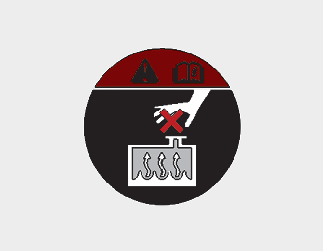
Never attempt to remove the radiator cap whilst the engine is operating or hot. Doing so might lead to cooling system and engine damage. Also, hot coolant or steam could cause serious personal injury.
Turn the engine off and wait until it cools down. Use extreme care when removing the radiator cap. Wrap a thick towel around it, and turn it counterclockwise slowly to the first stop. Step back whilst the pressure is released from the cooling system.
When you are sure all the pressure has been released, press down on the cap, using a thick towel, and continue turning counterclockwise to remove it.
Even if the engine is not operating, do not remove the radiator cap or the drain plug whilst the engine and radiator are hot. Hot coolant and steam may still blow out under pressure, causing serious injury.

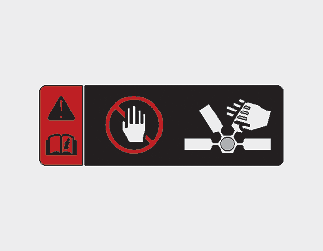
The electric motor (cooling fan) may operate until you disconnect the negative battery cable.
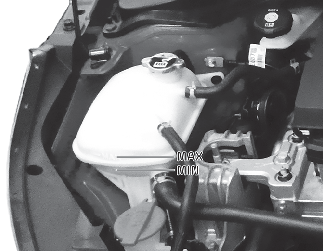
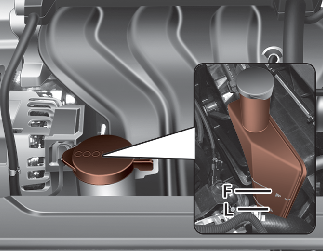
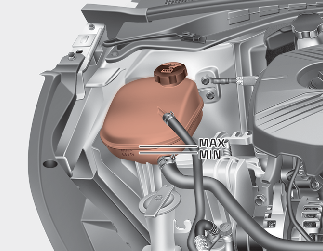
Check the condition and connections of all cooling system hoses and heater hoses. Replace any swollen or deteriorated hoses.
The coolant level should be filled between MAX and MIN (F and L) marks on the side of the coolant reservoir when the engine is cool.
If the coolant level is low, add enough distilled (deionized) or soft water. Bring the level to MAX (F), but do not overfill.
If frequent additions are required, have the system inspected by a professional workshop. Kia recommends to visit an authorised Kia dealer/service partner.

Make sure the coolant cap is properly closed after refill of coolant. Otherwise the engine could be overheated whilst driving.
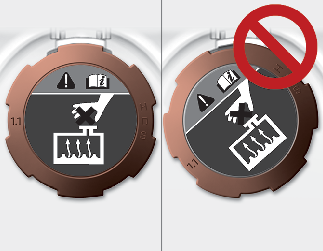
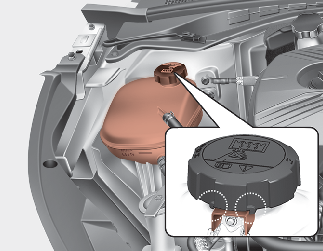
-
When adding coolant, use only deionized water or soft water for your vehicle and never mix hard water in the coolant filled at the factory. An improper coolant mixture can result in serious malfunction or engine damage.
-
The engine in your vehicle has aluminum engine parts and must be protected by an ethylene-glycol with phosphate based coolant to prevent corrosion and freezing.
-
DO NOT USE alcohol or methanol coolant or mix them with the specified coolant.
-
Do not use a solution that contains more than 60% antifreeze or less than 35% antifreeze, which would reduce the effectiveness of the solution.
For mixture percentage, refer to the following table.
|
Ambient Temperature |
Mixture Percentage (volume) |
|
|---|---|---|
|
Antifreeze |
Water |
|
|
-15°C (5°F) |
35 |
65 |
|
-25°C (-13°F) |
40 |
60 |
|
-35°C (-31°F) |
50 |
50 |
|
-45°C (-49°F) |
60 |
40 |
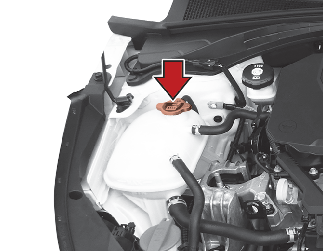
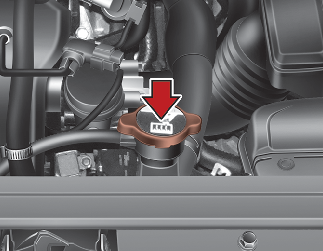
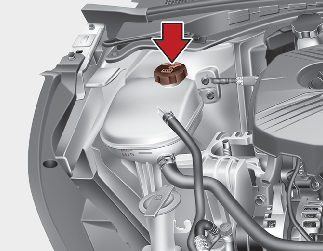

Radiator cap

Do not remove the radiator cap when the engine and radiator are hot. Scalding hot coolant and steam may blow out under pressure causing serious injury.